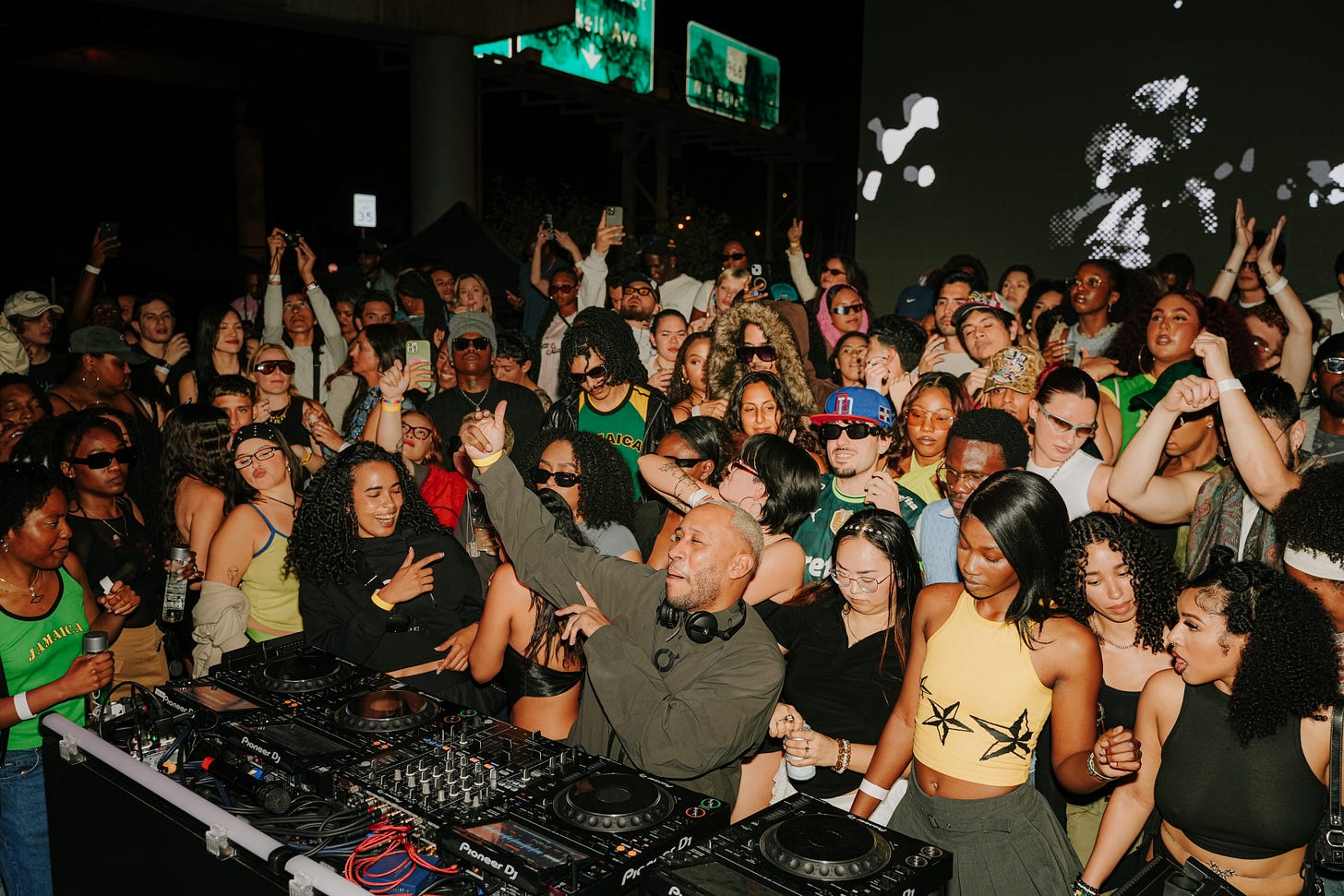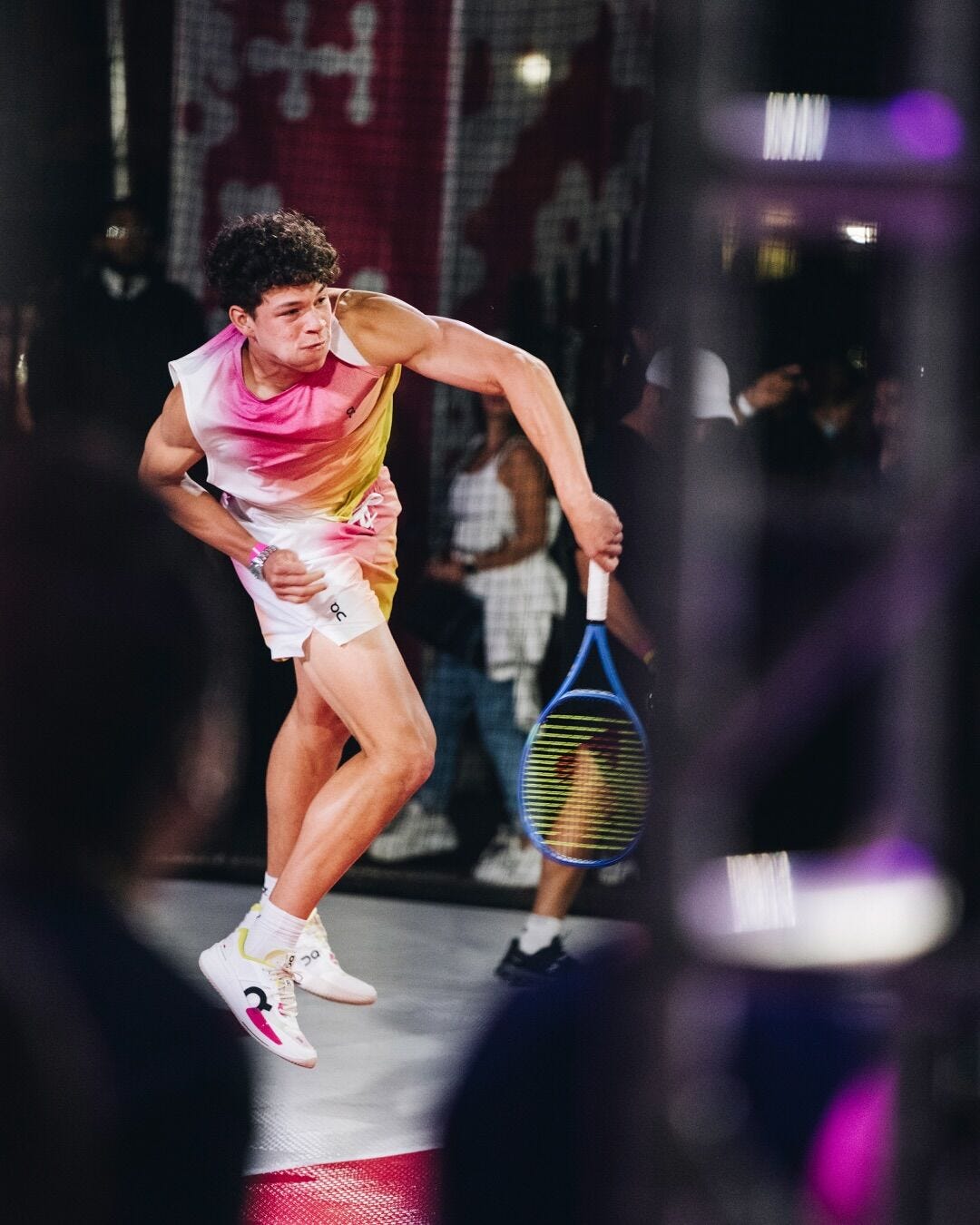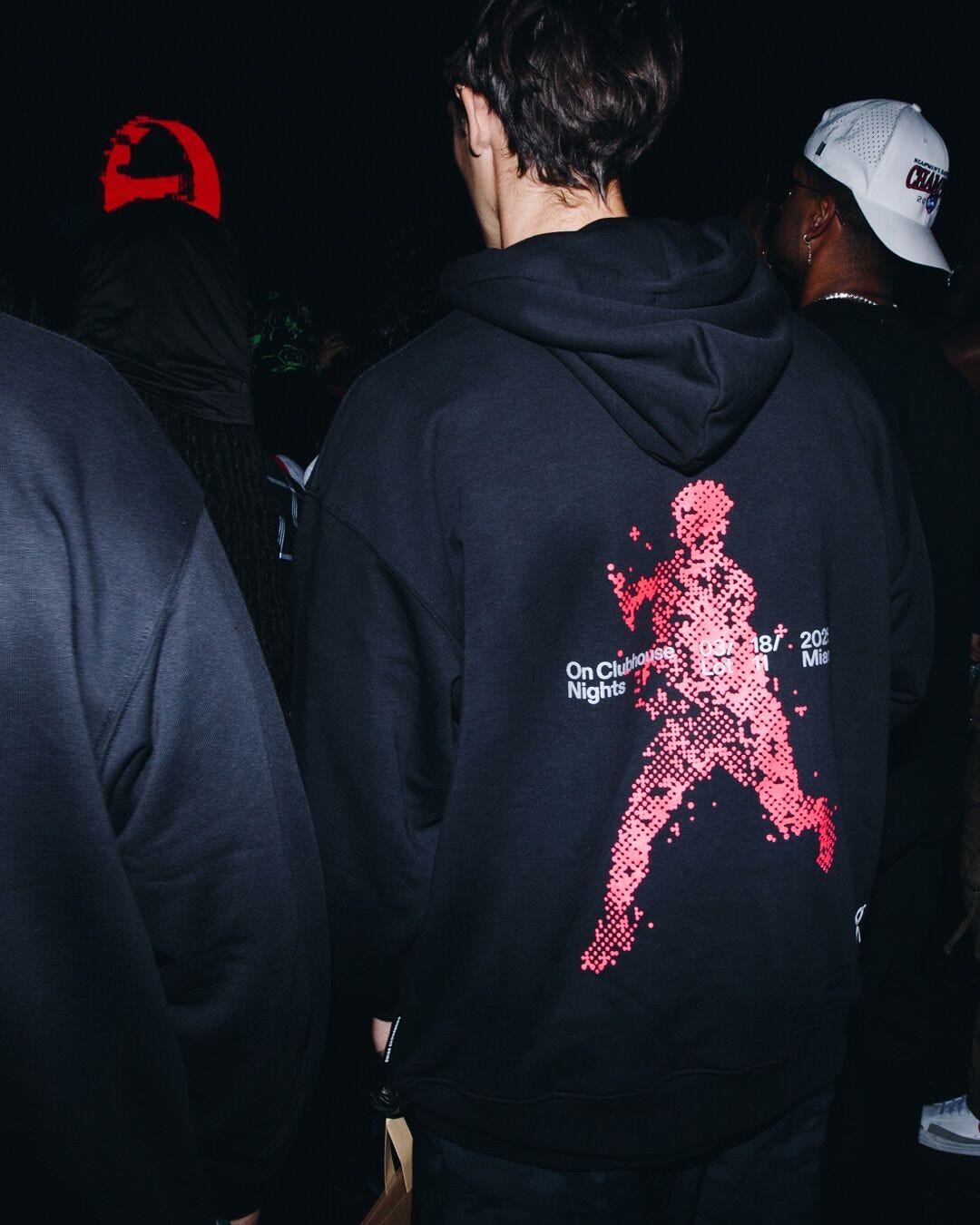What we can learn about sport and music
Notes from a trip to Miami with Boiler Room and On, and what I learned about the importance of music and sport in culture.
Last month, Boiler Room and On threw a party under a freeway in downtown Miami.
On the surface, it was a tennis tournament and a Boiler Room party. But in the details—in the people, the sound, the setting—it revealed something bigger about where culture is headed, and how smart brands are learning to show up in that space.
This wasn’t a glossy PR stunt. It wasn’t nostalgia for old tennis traditions or a shallow co-sign. It was something far more compelling: a collision of movement, rhythm, and identity. It was Sport and sound.
Subculture and scale. And the whole thing felt refreshingly unforced.
Let’s start with the basics.
Boiler Room is a fixture in underground music. For over a decade, they’ve been documenting regional sounds with a lo-fi, intimate sensibility. From Colombian champeta to Brazilian funk to UK grime and amapiano, Boiler Room doesn’t chase trends—it amplifies them at street level. The brand's cultural fluency comes from being on the ground, not in a boardroom.

Joe, a Head of Programming at Boiler Room, describes the mission clearly: “We’re not here to make people global stars—we’re here to document what they’re already building on their own terms.”
This commitment to platforming regional scenes, without watering them down, has turned Boiler Room into more than a music platform. It’s become a sort of global archive for underground energy.
So why team up with a Swiss performance brand?
On, at first glance, is a running shoe company. But if you’ve been paying attention, they’re doing more than selling gear. They’ve quickly carved out space between high performance and cultural relevance.
They’re not chasing Nike’s legacy or Adidas’ street cachet. Instead, they’re building something that lives in its own lane—one that blends sport, style, and story.
They’ve collaborated with Zendaya. FKA Twigs. Sponsored tennis players like Ben Shelton and João Fonseca. They’ve leaned into the idea that modern sport doesn’t have to follow old blueprints.
It can remix, reinterpret, and rebuild entirely.
In a way, On doesn’t have a heritage in the same way, and that’s a strength. They’re not trying to show up as anyone other than themselves.
The Miami event reflected that ethos. On hosted a community tennis tournament at Lot 11 Skatepark—an open-air spot beneath the I-95. It drew an eclectic crowd: skaters, athletes, artists, creators, and locals. The day ended with Boiler Room DJ sets from Marte, Pressure Point, Cromo X, and Shenseea.
It didn’t feel branded. It felt lived in.
Cromo X, a Dominican DJ and producer who played that night, described the energy like this: “Seeing the crowd filled with people from different cultures and languages, and still feeling like we were all in sync through music—it’ll never stop feeling magical.”
Cromo’s music is rooted in Latin and Caribbean rhythms, but he resists the idea of needing to preserve purity. "Nothing is ever truly pure—everything we are is a blend," he says.
That blending—of sound, of heritage, of identity—is what makes Latin music not just globally resonant, but also uniquely tied to movement.
"Dancing is its own kind of sport," he added. "Athletes, in many ways, are artists too."
Joe echoed a similar idea when describing Boiler Room’s philosophy: “There’s no single music industry. There are hundreds of parallel ones—each with their own rules and rhythms.”

Another thing he said stuck with me: “Some of the most rewarding shows we’ve done were for people who never sought the spotlight. That’s who we want to serve.”
It was a new kind of cultural blueprint—one that respects the local while connecting it to a global audience. One that doesn’t flatten difference but spotlights it.
And that might be the most valuable takeaway: brands don’t need to borrow credibility. They need to earn trust. That means showing up in culture not as tourists, but as listeners.
The role of a good brand today isn’t to own the conversation. It’s to recognize which conversations matter, and then show up with care.
At a time when music and sport are increasingly co-opted by commerce, it’s easy to become cynical. But the Boiler Room x On event in Miami felt like a reminder that it doesn’t have to be that way.
It’s possible to show up with intention. It’s possible to create space rather than fill it.
It’s possible to build something real—and let people move through it their own way.





https://open.substack.com/pub/thepavilionend/p/the-week-in-sport?r=48gx3i&utm_medium=ios